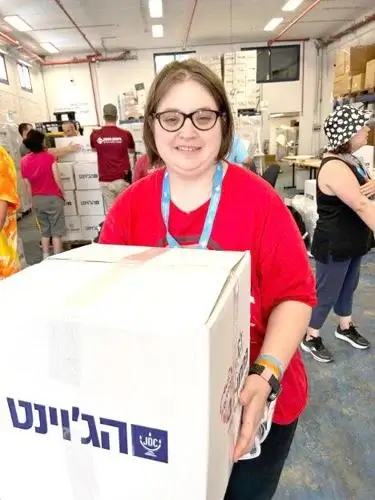KAITLYN FINCHLER kfinchler@cjn.org Posted Oct 23, 2024 at 8: 30 AM
You can view the original article here at Columbus Jewish News
Maddy Katz, 27, packs food for low-income residents at Pantry Packers in Israel. Submitted photo
In an effort to encourage people with disabilities to go on Birthright trips to Israel, residents across the United States traveled with Camp Ramah to volunteer, sightsee and engage in Jewish traditions in the country.
Maddy Katz, a 27-year-old Columbus resident, took part in one of these trips from Sept. 16 to Sept. 24.
Some of the highlights of the trip for Katz were watching and trying wheelchair paralympic basketball, picking olives on a farm, packing food for low-income people, making tzitzit for soldiers, seeing friends and family, watching sunsets, celebrating Shabbat and trying new foods, she told the Columbus Jewish News.
“I have ADD/ADHD,” she said in an email. “So, visuals are very helpful and we had a lot of people who were like that on this trip. We had one person who was missing a limb and a couple people with food allergies – also me. It was a lot of (fun) learning about everyone and everyone’s special talents.”
Howard Blas, senior adviser at the National Ramah Tikvah Network, organized the trip with Birthright Israel.
PHOTOS: Columbus resident reflects on Camp Ramah, Birthright Israel trip
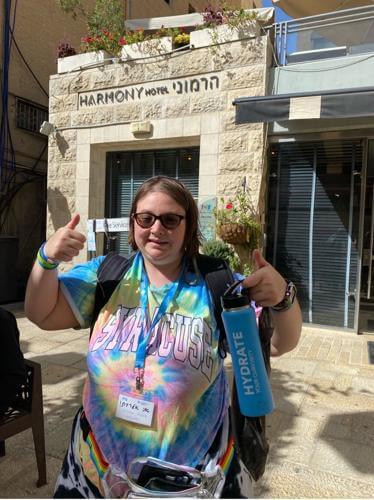
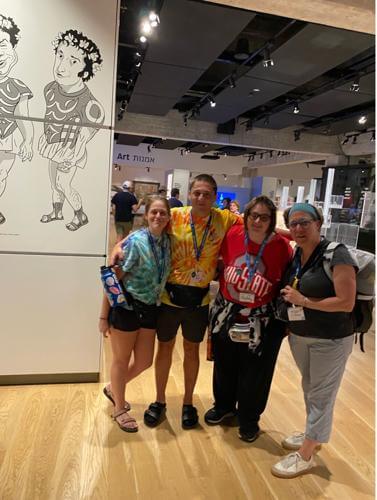
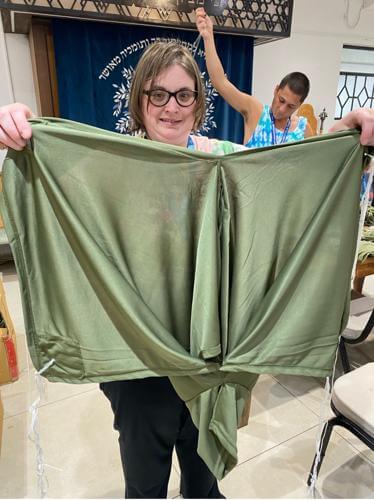
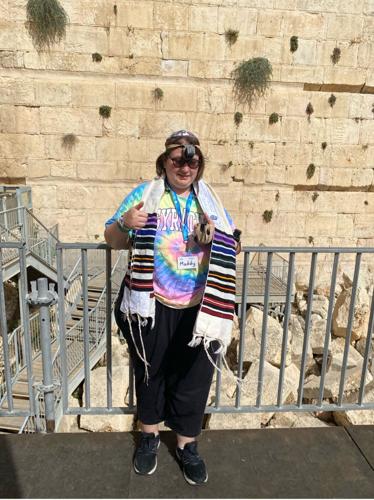
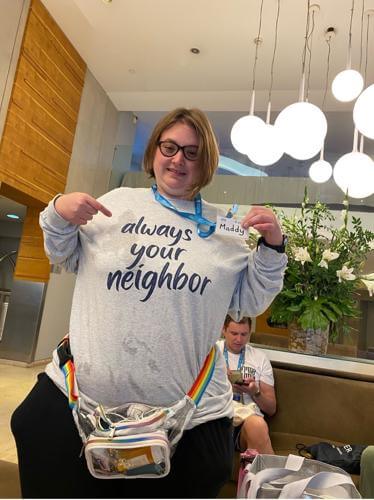
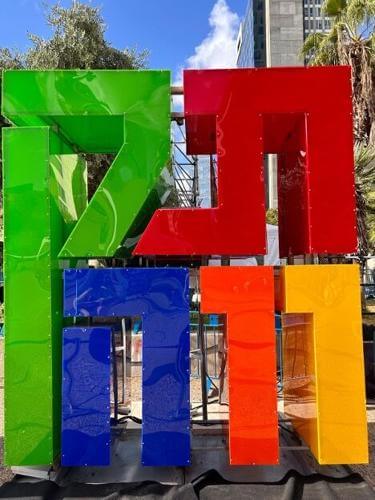
“A lot of people started getting the idea that volunteering in Israel was a nice way to pitch in and show support and help out,” Blas, a New Haven, Conn., resident, told the CJN. “I got the idea that maybe people with disabilities would also have something to contribute.”
Blas said he approached Birthright since he had organized trips for people with disabilities for the organization before, and they were “very supportive” and said “let’s do it.”
The group unexpectedly had to relocate to Jerusalem on the last night of the trip due to safety concerns, but organizers tried to minimize unpredictable occurrences, Blas, a congregant of The Westville Synagogue in Westville, Conn., said. Traveling with people with disabilities comes at a higher cost than a typical trip to Israel.
“Our population needs more support and we need staff,” he said. “We need to fly with them. We need to have extra activities and hotels will be better, meals will be better. So, (Birthright) basically picked up the cost of all those accommodations for our group.”
Katz said this trip was geared towards everyone’s individual needs at a “much slower pace” and more her speed.
“We’re flexible,” Blas said. “Even though it’s very structured, if we see that people are really tired and we’ve overestimated how much we can get done in a day, we can reevaluate. We were very impressed with the group’s flexibility.”
It was “extraordinary” to see the realization in the participants that they were able to do everything their families had done on other Birthright trips, Blas said.
Planning for trips with neurodivergent participants means more structure, Blas said. Free time is “not usually the best” for these trips, so off-time was filled with activities and excursions.
Katz, who volunteers “a lot” with Neighborhood Services Inc., a food bank in Columbus, said the participants prayed “the Camp Ramah ways” with tunes from camp, and saw Jewish sites such as Hostage Square, Old Jerusalem, food markets and more.
Hoping more Jewish leaders will recognize the importance of these specialized trips, people with disabilities need to be considered as the same priority as neurotypical people and people without disabilities for Birthright trips, Blas said.
The next trip akin to this with Birthright will be in December for individuals with autism spectrum disorder.
Katz, a congregant of Congregation Tifereth Israel in Columbus, previously went to Israel on a Birthright trip with Blas in December 2017. She wanted to go again because Blas was “very organized” and a “great leader,” and wanted to be with people like her, she said.
“The first trip was much more fast-paced and moving around a lot,” Katz, who works part-time at the Grandview Yard Giant Eagle in Columbus, said. “This trip was one – a different city for the last night for safety, not planned – hotel and it was much more volunteering, which is what I love.”
